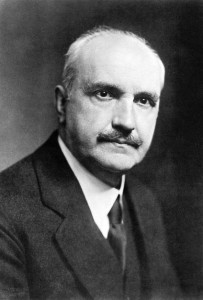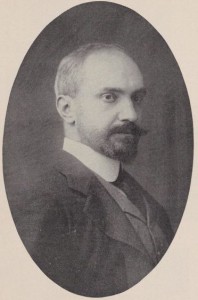 To Lawrence Smith Butler
To Lawrence Smith Butler
Via Santo Stefano Rotondo, 6
Rome. January 27, 1949
Dear Lawrence,
Your nephew William Huntington1 came to see me the other day and gave me good news of your convalescence, and today your box of presents has arrived, which is a sign that you are about and felt like stretching a hand in the direction of Rome. The black tie especially shows that you remembered an old fancy of mine. The first black tie is still in daily use and in spite of hard usage looks smooth and (to my eyes, at least) stainless. Now it can be replaced by the new one on the days when I wear a white shirt instead of pyjamas in order to look respectable on an excursion to the bank, the apothecary’s and the stationer’s–my constant round when I go in town (in a taxi, because it is beyond my range on foot at present).
The glorious large jars of mayonnaise sauce are going to transform my suppers, on the days of hard-boiled eggs and salad–even if potatoe salad–beginning with this evening, particularly apropos, because there is a strike of gas workers and a stoppage due to repairs at the electric works, so that hot dishes are temporarily abolished. However, in the big kitchen down stairs they have a coal or a wood fire; but for my minor meals Sister Angela provides in the ladies-kitchen in their corridor, and the Italian maid Maria brings them to me on a tray, because the dismal atmosphere of the table d’hôtes on my first arrival here–seven years ago—appalled me, and I have all my meals in my room. Your “Irish” tea will delight Sister Angela, a native of Eire, but I suppose it is not green tea, now that the Eirish colours have changed. All the other things are equally welcome and just what I need. “Need”, as I think I said in my last letter, is not an accurate expression, because we are now provided wth all the necessaries, but I like to get tea and coffee, so that my daily consumption of both may not cut into the Sisters’ share. Being most of them of Irish extraction they like tea, and like it strong.




